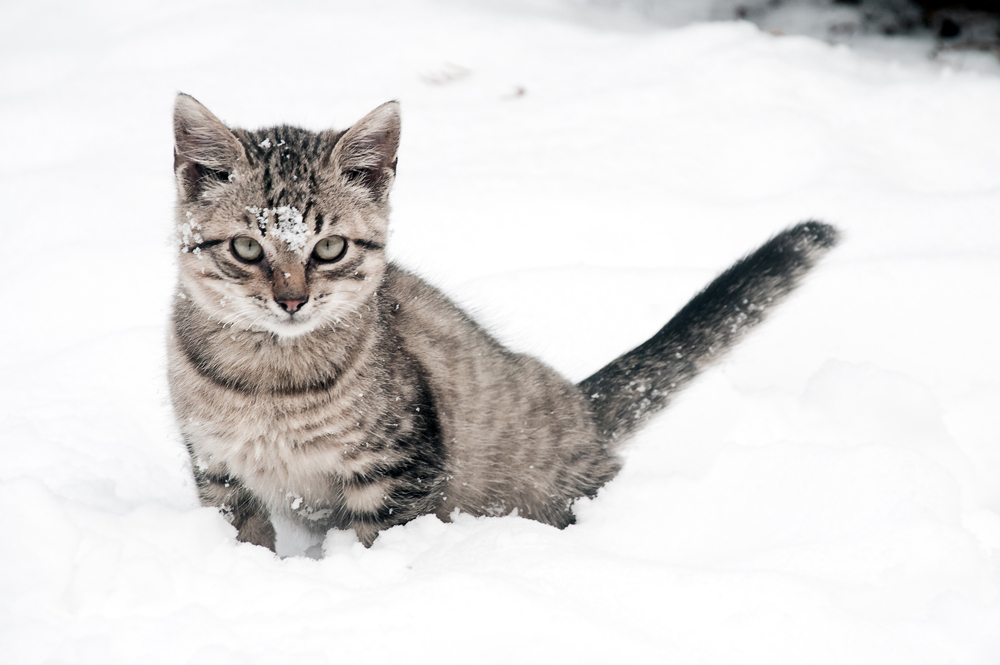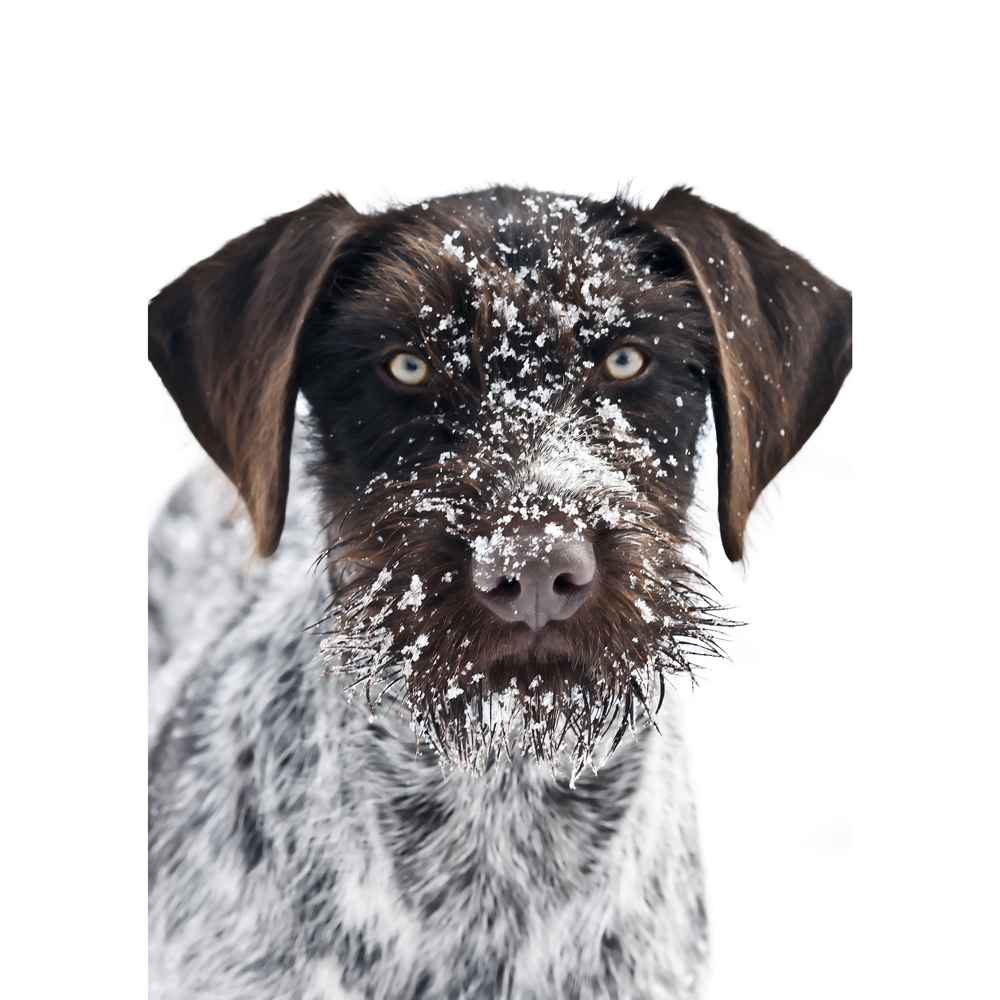AS the temperature drops, the UK’s largest vet charity PDSA is warning owners to take extra care of their pets. Despite their fur coats our pets need a little extra TLC at this time of year.
Here are PDSA’s tips for taking care of your furry family members, so that you’re prepared whatever the weather.
Keeping safe outside
The winter season isn’t always the most pleasant for our pets so take extra care when outdoors and watch out for these common winter hazards:
Salt and grit – used on roads in winter these can irritate pet’s paws. If you end up walking on salt and grit, be sure to wash your pet’s paws upon returning home.
For an added layer of protection, you could apply a thin layer of paw butter or other pet-safe skin cream to your dog’s pads to help protect them from cracking.
Snowy paws – if it’s a white Christmas, the snow can build up on dogs’ paws and cause them discomfort, so prepare paws by keeping hair between pads trimmed, so that there’s less hair for snow to gather on.
When you get home from your snowy walk, check your dog’s paws and soak off any snow in warm water.
Antifreeze and de-icer – perfect for stopping cars icing up in winter but incredibly toxic for animals and can be fatal if ingested. If you suspect your pet may have licked some antifreeze, contact your vet and get them treatment immediately.
Never wait for symptoms to appear. Keep antifreeze out of the reach of pets and clean up any spills really thoroughly – so no one is put at risk.
Provide shelter – ideally, on very wintry nights we’d advise that you keep your dogs and cats indoors, but if your cat is determined to explore the great outdoors no matter the weather, ensure they can get back inside your home or have a warm shelter they can go to at any time.
This is especially important if you don’t have a cat flap, if your cat flap has frozen up or if it has become blocked by snow.
Check your cars – cats often shelter under cars in cold and wet weather, or can climb inside the bonnet to take advantage of a warm engine. Always check under the bonnet for visitors who may have climbed up inside and a give good knock on the bonnet before you start the car as an additional safety check.
Storms and floods – these can cause havoc, so it’s best to be prepared for bad weather over winter. Take shorter walks to prevent a drenching. Makes sure cats can come back inside easily.
Raise hutches off the ground, move them to a more sheltered location and check for waterproofing. Loud noises can scare animals so ensure they have safe spaces, like a den, and explore whether a pheromone diffuser might be of use. .
Poisonous plants – festive favourites like holly, ivy and poinsettia are all toxic to pets if they eat them. For peace of mind, keep them out of your pet’s reach.

Winter walkies
Many dogs still love the chance to go out on adventures during the colder months:
Take extra precautions during walks when the sun goes down. LED collars, hi-vis leads and coats, as well as a torch are great for lighting the way and being visible.
Some dogs grow thick furry coats all year round, so aren’t as bothered by the chilly weather, but some shorter-haired breeds, puppies and older dogs may need extra help staying warm.
Staying active is really important, so you don’t let
your pet become a winter
couch potato.
Always be extra careful and watch your step on walks, as icy surfaces can be just as slippery for our pets.
Frozen ponds may be enticing for curious canines, but they are as dangerous to our pets as they are to us.
Keep them warm, cosy and active indoors
Pets often enjoy the chance to snuggle down indoors when the temperature drops. There are a few things you can do to make staying inside more pleasant all round:
Your cat or dog may really appreciate a few extra comfy spaces to curl up in around the house, or a few extra blankets for their bed. Raise beds off the floor, so they’re not sitting in a cold draught.
It’s a good idea to provide your cat with a couple of litter trays inside, even if they always like to toilet outside. This gives them the option of keeping warm indoors.
It’s important to keep your pets active whatever the weather. If your pet is likely to miss out on vital exercise due to poor weather, ensure they have toys to keep them entertained.
Pets can start to get stiff joints and arthritis in their old age and sometimes colder weather can make this worse. Make sure you seek advice on how take good care of your older pet’s joints, especially in the cold.
Caring for smaller pets
Our small pets (such as rabbits, guinea pigs and ferrets) are very susceptible to temperature changes. A sudden drop in temperatures can be a real shock to the system, but there are a number of things you can do to help them:
If your pets normally live outdoors, bring them into a sheltered area, out of draughts, such as a shed or car-free garage protected from rain and snow.
Pets that are used to living outside may find a centrally heated home quite a stark contrast, so a half-way house like suggested is ideal, but if you haven’t got that option, control the temperature, so it’s not too warm for them.
Make sure they have access to natural light and a run.
Keep them cosy. All small pets should have extra bedding over winter so make sure there’s plenty, that it’s dry and very deep so they can snuggle down.
If there is no option but to keep hutches and runs outside, drape a blanket or piece of carpet over the open mesh door of their living quarters to keep out strong winds and driving rain or snow. Make sure they have plenty of fresh air though.
Insulate outside walls with newspapers covered with plastic sheeting but make sure this doesn’t obstruct the ventilation. You can also get pet-safe microwavable heat pads to keep hutches warm,
Check water bottles and nozzles multiple times a day to make sure they aren’t frozen. Provide other sources of water too, such as a water bowl.
www.pdsa.org.uk









Leave a Reply